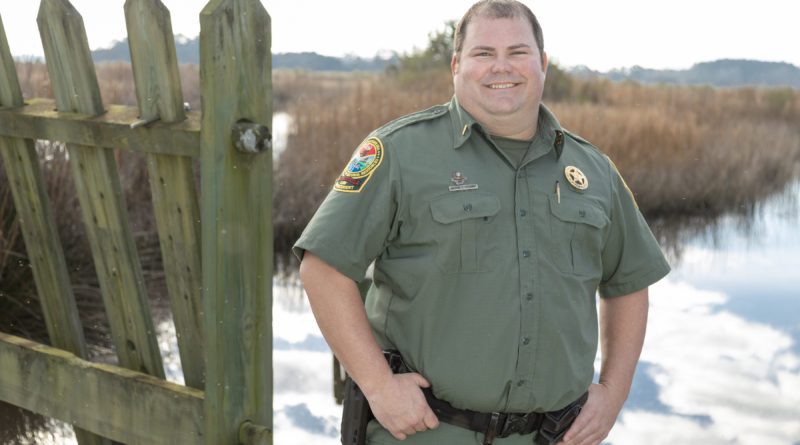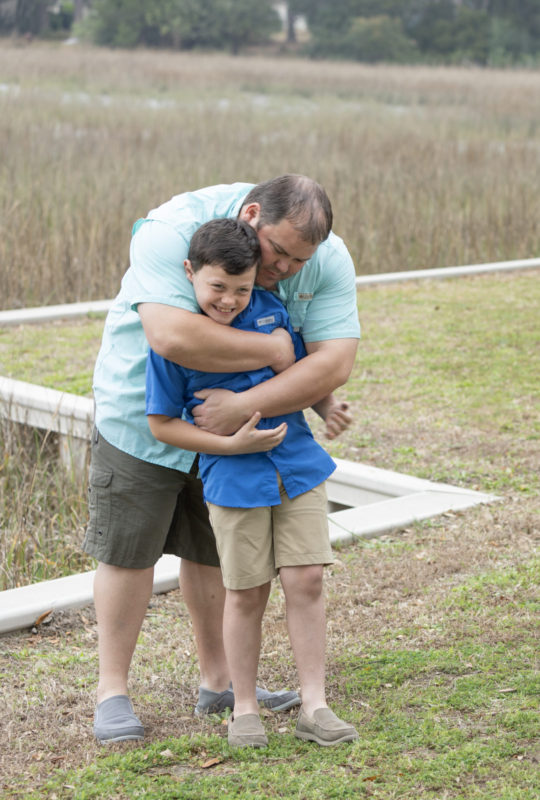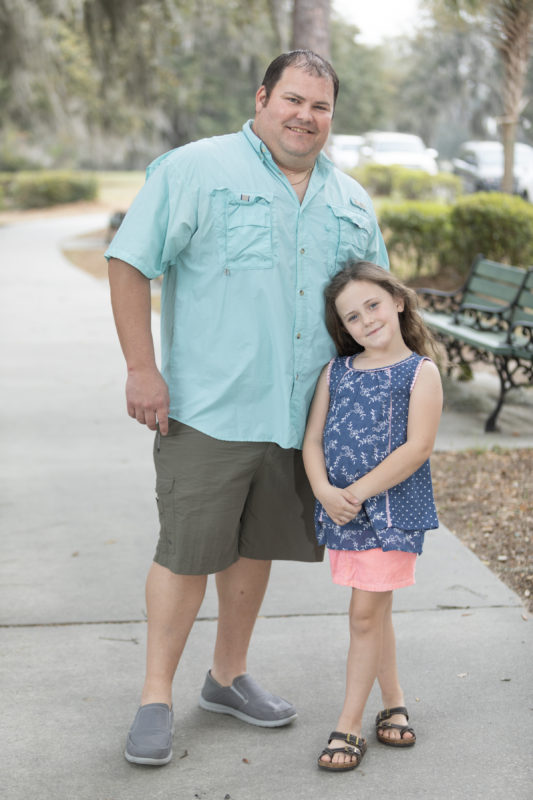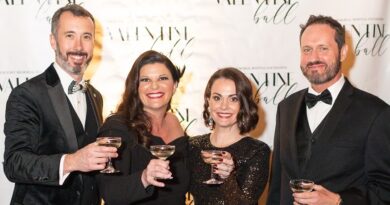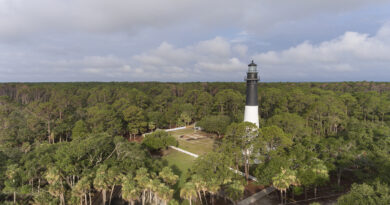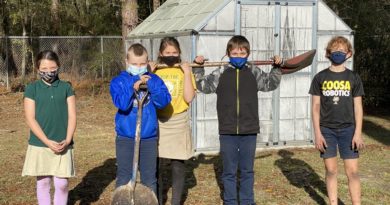Andrew Godowns
Living a Life of Dedication and Service to Beaufort and its Natural Resources
story by KAREN SNYDER photos by PAUL NURNBERG
 From the ocean to our beaches, to the marshes, and the forest beyond, the Lowcountry’s beauty and lure quickly become part of the souls of natives and visitors alike. For those lucky enough to be born here, like South Carolina Department of Natural Resources (SCDNR) Lieutenant Andrew Godowns, protecting the natural resources of Beaufort and beyond is an important, on-going priority.
From the ocean to our beaches, to the marshes, and the forest beyond, the Lowcountry’s beauty and lure quickly become part of the souls of natives and visitors alike. For those lucky enough to be born here, like South Carolina Department of Natural Resources (SCDNR) Lieutenant Andrew Godowns, protecting the natural resources of Beaufort and beyond is an important, on-going priority.
“Our area and what it has to offer is what sets us apart from all others,” says Godowns. “When people decide to visit or to live here, they’re coming because of our beaches, our waterways, and the coastal environment.”
As a SCDNR law enforcement officer and supervisor, Lieutenant Godowns and his four units of thirty-one officers are charged with protecting natural resources some 300 miles offshore and on land in Beaufort, Charleston, Colleton, Dorchester, Hampton, and Jasper counties.
“Our job is really about community policing and helping to educate people about how to interact with our environment responsibly. It’s not simply about issuing tickets and warnings,” he assures.
“Our natural resources here in South Carolina are one of our biggest economic and physical assets. We want anyone living or visiting here to help preserve our environment, so our families can benefit from them not only now but in future generations to come.”
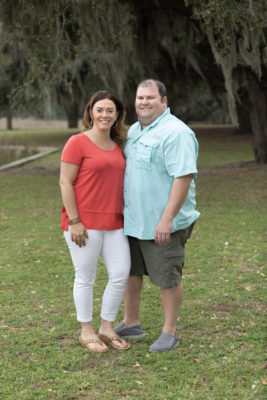 Married to wife, Katie, who he’s known since age 11, and father to son, Auston (age 7) and daughter, Hampton (age 5), Godowns says, “My family and I love spending time outdoors. We love to go boating, fishing, and hunting. My job in law enforcement is really to ensure that everyone can enjoy these same things. By taking proper precautions now to preserve our natural resources, my children and their children will be able to enjoy them, too.”
Married to wife, Katie, who he’s known since age 11, and father to son, Auston (age 7) and daughter, Hampton (age 5), Godowns says, “My family and I love spending time outdoors. We love to go boating, fishing, and hunting. My job in law enforcement is really to ensure that everyone can enjoy these same things. By taking proper precautions now to preserve our natural resources, my children and their children will be able to enjoy them, too.”
The job is not without challenge, however. “With increased population growth and new construction, we have to do what we can now to protect the surrounding environment. This includes protecting our fish populations. And our waterways have become more congested, too,” he explains. “If you move here, chances are you’re going to be out there on the water just like everyone else,” he adds. “So, ensuring that people fish and boat safely is important.”
“Yes, we’re going to be out there checking fishing licenses, searching for drugs, and monitoring things. But for us, it’s about building relationships with the community.” In fact, asserts Godowns, “I bet more people know local SCDNR officers by name than they do other law enforcement officers in the area they live. They know us and why we’re here. I really appreciate that, when we intervene, they thank us for educating them on safety precautions and regulations.”
A 2006 graduate of Charleston Southern University, where he received his Bachelor of Science degree in history with a double minor in communications and science, Godowns first pursued a career in teaching. “I taught one school year in Charleston public schools, but decided it wasn’t for me. My wife saw a job announcement posted for SCDNR, and I was able to get my application in just as the job posting was closing.”
Godowns is no doubt where he was destined to be. In 2007, after an interview process that included both written and physical fitness tests and meetings with a board, he was selected for the job, beginning his career as a Conservation Officer and serving in the northeastern Pee Dee region of SC.
“In order to take the job, I was required to live there, so I moved away from Beaufort. Looking back, I know now that it was a good thing. I was able to get all of the training and experience I needed, away from home where everyone knew me, before transferring back to the Lowcountry in 2011,” he explained.
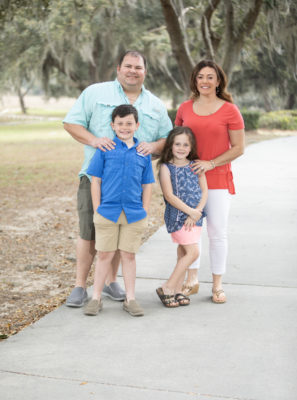 Before returning home, Godowns had already begun to receive the first of many professional accolades for his work. In 2010, Godowns was named SCDNR State Officer of the Year, among other awards that year, including the Shikar Safari International Wildlife Officer of the Year and SC Representative for the Southeastern Wildlife Officer Award. The following year, Godowns was named the National Wild Turkey Federation SC Chapter Officer of the Year, SCDNR Region 2 Officer of the Year, and the Region 2 National Association of State Boating Law Admin Officer of the Year.
Before returning home, Godowns had already begun to receive the first of many professional accolades for his work. In 2010, Godowns was named SCDNR State Officer of the Year, among other awards that year, including the Shikar Safari International Wildlife Officer of the Year and SC Representative for the Southeastern Wildlife Officer Award. The following year, Godowns was named the National Wild Turkey Federation SC Chapter Officer of the Year, SCDNR Region 2 Officer of the Year, and the Region 2 National Association of State Boating Law Admin Officer of the Year.
Building relationships with others along with community outreach admittedly is Godowns’ favorite part of his job and something for which he’s continued to receive much deserved recognition. “I view my job as being as much about education as it is enforcement,” he explains, saying the department offers many community programs and activities. From boater education and safety classes using boat simulators, to family fishing clinics where anyone can learn to fish, to archery, and learning how to hunt and shoot, Godowns says, “it all serves as a platform to reach as many people as possible.”
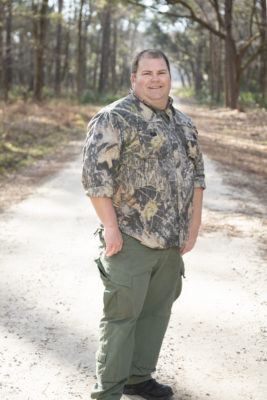 Clearly passionate about his work, he says he loves the diversity of his job. “When boating season ends, I’m out of the boat and head to the woods. My job is seasonal, and I like that.” He indicates that he really enjoys working with area youth the most. One program in which he is involved is called Take One Make One (TOMO). The program is designed to teach safe hunting practices to students, ages 10-17, who have no previous outdoor hunting experience. “There’s truly nothing like seeing a young person’s eyes light up when they shoot their first deer, turkey, or duck,” admits Godowns, who also owns a 1,200-acre recreational property along the Combahee River. The TOMO program’s focus is to increase awareness and value of wildlife while teaching safe and ethical hunting practices, he explains.
Clearly passionate about his work, he says he loves the diversity of his job. “When boating season ends, I’m out of the boat and head to the woods. My job is seasonal, and I like that.” He indicates that he really enjoys working with area youth the most. One program in which he is involved is called Take One Make One (TOMO). The program is designed to teach safe hunting practices to students, ages 10-17, who have no previous outdoor hunting experience. “There’s truly nothing like seeing a young person’s eyes light up when they shoot their first deer, turkey, or duck,” admits Godowns, who also owns a 1,200-acre recreational property along the Combahee River. The TOMO program’s focus is to increase awareness and value of wildlife while teaching safe and ethical hunting practices, he explains.
His role in these activities and others has continued to garner him recognition, including being named the Jesse L. Altman Award for Law Enforcement from the Beaufort Rotary Club in 2014 and the Region 4 Unit G Officer of the Year. And more recently, he was the FBI-LEEDA Trilogy Award recipient in 2019 and an Officer Gregory Alia Award finalist in 2020.
This recent award finalist recognition was received for Godowns’ efforts as part of a SCDNR “Adopt a Senior” scholarship program. According to Godowns, the Harry Hampton Fund donated a $500 scholarship awarded last June to Tyler Hancock, then a senior at Battery Creek High School, whose dream is to one day become a SCDNR officer. Godowns, who often donates his own time, energy, and money for outreach programs, said that, in addition to the scholarship, the officers raised money to give Tyler other items like a laptop, mini-fridge, and other essential college supplies as well as a lifetime hunting and fishing license. Hancock had been involved with many of the department’s programs throughout his life, so he was someone the officers knew well. It had come to Godowns’ attention that the young student could use some support to make his dream come true. That’s all Godowns needed to hear. He lead by example to rally everyone on his team to find a solution.
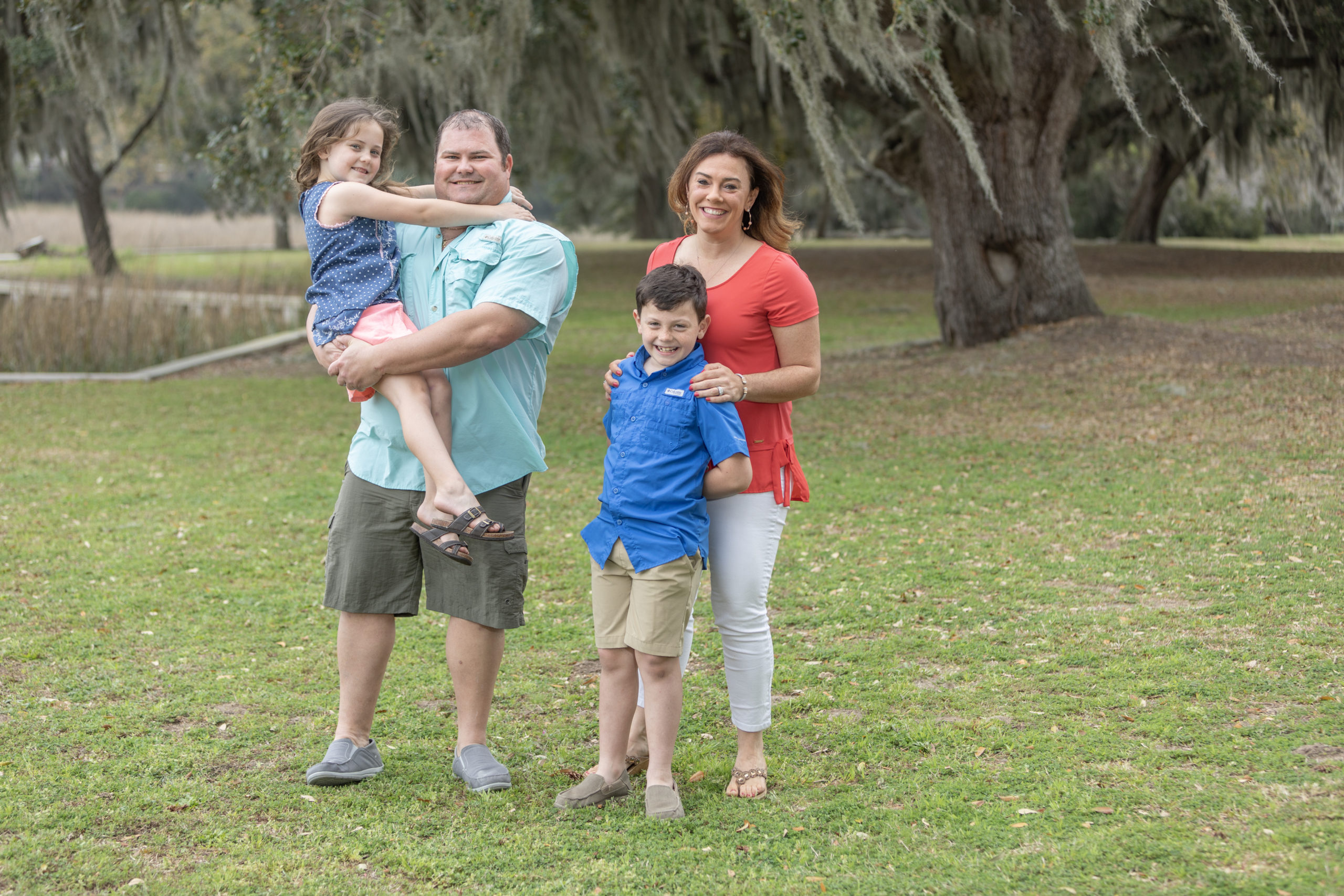
“We organized a parade of vehicles with sirens blaring and surprised him at the school on graduation day.” Upon seeing the parade and receiving the scholarship, Hancock responded with tears as did many of the SCDNR officers. “I have to admit there were a lot of grown men crying that day,” laughs Godowns. Hancock is now pursuing a degree in wildlife science at Horry County Technical College.
Godowns, who continued his own education receiving his Master of Science degree in conservation law enforcement from Unity College in 2019, understands that it often can “take a village” to raise a child. “Together, you can get through so much more. You can accomplish so much more than as an individual. Come together. Be there for your brother and sister.”
He continues, “Beaufort is a melting pot of all different cultures and people. I see my role in law enforcement as encouraging everyone to simply come together and communicate,” adding that his department strives for transparency in their work. “It’s why we reach out to the community and do everything we do. By building relationships, we can communicate better. With better communication, we solve problems.”

